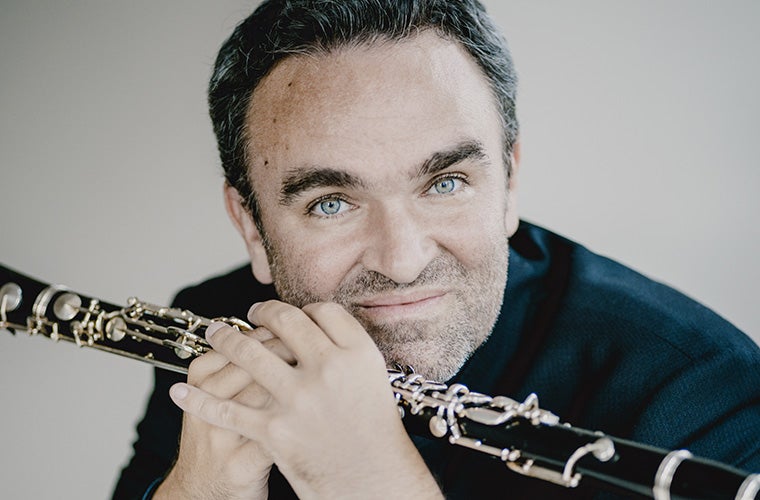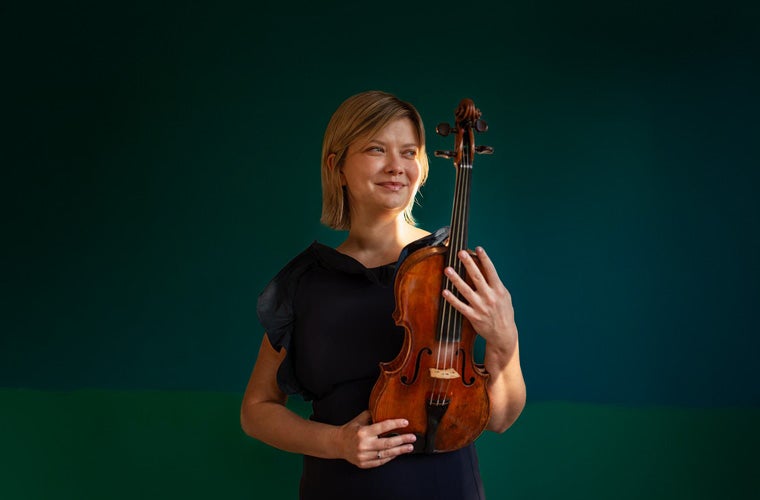
Jörg Widmann
b. 1973
Biography
Jörg Widmann is considered one of the most versatile and intriguing artists of his generation. The 2024/25 season sees him appear in all facets of his work, as a clarinettist, conductor and composer, including his second season as Principal Guest Conductor of NDR Radiophilharmonie and Creative Partner of Deutsche Radio Philharmonie, Artistic Partner of Riga Sinfonietta and Associated Conductor of Münchener Kammerorchester.
Following recent important conducting projects with orchestras such as Berliner Philharmoniker and Symphony Orchestra of the Bavarian Radio, in the 2024/25 season Jörg Widmann appears with Seoul Philharmonic Orchestra, National Symphony Orchestra of Taiwan or the Orquestra Simfònica de Barcelona. Other highlights include his residency with Stavanger Symphony Orchestra and the Spanish premiere of his work Danse macabre performed by the National Orchestra of Spain in Madrid under his baton. 2025 sees Widmann make his debuts at the helm of BBC National Orchestra of Wales and NHK Symphony Orchestra for the orchestra’s Music Tomorrow series, the programme of which includes the Japanese premieres of Danse macabre and the trumpet concerto Towards Paradise with soloist Håkan Hardenberger. Re-invitations take him to Finnish Radio Symphony Orchestra, Irish Chamber Orchestra and Orchestra Ensemble Kanazawa amongst others.
Jörg Widmann also continues his longstanding chamber music partnerships with renowed artists such as Antoine Tamestit, Sir András Schiff, Carolin Widmann, Sarah Aristidou, Nicolas Altstaedt, Denés Varjon and Hagen Quartet and performs chamber recitals at Musikverein Wien, Pierre Boulez Saal in Berlin and Alte Oper Frankfurt.
Widmann gave the world premiere of Mark Andre’s Clarinet Concerto über at the Donaueschinger Musiktage 2015. Other clarinet concertos dedicated to and written for him include Wolfgang Rihm’s Musik für Klarinette und Orchester (1999) and Aribert Reimann’s Cantus (2006).
His compositions are performed regularly by conductors such as Daniel Barenboim, Daniel Harding, Kent Nagano, Franz Welser-Möst, Christian Thielemann, Iván Fischer, Andris Nelsons and Sir Simon Rattle and premiered by orchestras as Wiener and Berliner Philharmoniker, New York Philharmonic, Concertgebouw Orchestra Amsterdam, Cleveland Orchestra, Orchestre de Paris, London Symphony Orchestra, and many others.
Jörg Widmann studied clarinet with Gerd Starke in Munich and Charles Neidich at the Juilliard School in New York and later became himself Professor of Clarinet and Composition, first at University of Music Freiburg and since 2017 as Chair Professor for Composition at the Barenboim-Said Academy Berlin. In June 2024 Jörg Widmann was named a member of The Royal Swedish Academy of Music in consideration of his merits to musical art. He is a fellow of the Institute for Advanced Study in Berlin and a full member of the Bavarian Academy of Fine Arts, Free Academy of the Arts in Hamburg (2007), German Academy of Dramatic Arts and Academy of Sciences and Literature Mainz (2016) and received an Honorary Doctorate from University of Limerick, Ireland in February 2023.
He studied composition with Kay Westermann, Wilfried Hiller, Hans Werner Henze and Wolfgang Rihm. His works continue to receive many awards, most recently Bach-Preis der Freien und Hansestadt Hamburg, as well as Musikpreis der Landeshauptstadt München.
Photo Credit: Marco Borggreve
Featured Events
Mozart's Jupiter Symphony
- Con brioJörg Widmann
- Violin Concerto No. 5, "Turkish"Mozart
- Symphony No. 41, "Jupiter"Mozart
